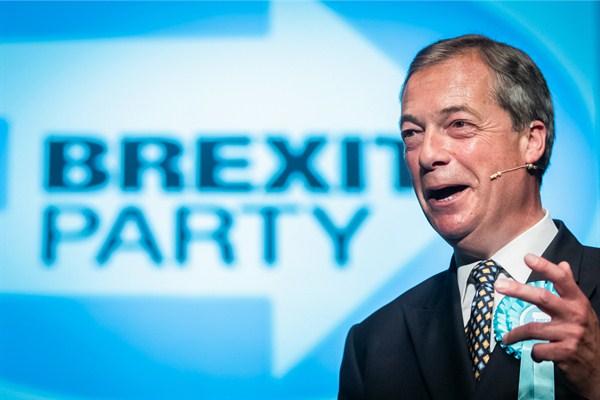Just two weeks after the far-right Brexit Party emerged as one of the winners of the European Parliament elections, Nigel Farage’s new political outfit was presented with its first opportunity to win a British parliamentary seat. It was in a by-election in the constituency of Peterborough that appeared firmly slanted in its favor. Peterborough voted to leave the European Union in the 2016 referendum by a clear majority of nearly 61 percent. Its disgraced Labour MP, Fiona Onasanya, who was only elected in 2017 by a paper-thin margin of 607 votes, had been recalled by her own party after being sentenced to three months in prison for lying to a police officer following a speeding violation. So this month’s by-election was very much the Brexit Party’s to lose—and yet, somehow, lose it did.
In what has become a familiar routine for Farage-led parties, European election success has once again failed to carry over into national contests. Labour held onto the constituency on June 6 by a mere 683 votes. And although the party’s vote share plummeted by 17 points to a paltry 31 percent, it actually increased its majority by 76 votes. This in itself might not be a cause for celebration for Labour, but it does reveal a deeper truth about British politics that should give the party some reason to rejoice.
Labour’s success in Peterborough was a result of two factors. First, the party has a much more evolved machinery than Farage’s new party, which is really more of a single issue pressure group, focused on a hard Brexit, than a proper political party. Labour’s activists were equipped with databases of voter addresses, which helped them get the vote out on Election Day. But there were also much deeper political currents at play. The Brexit Party, like the U.K. Independence Party that Farage led before it, peels the hard-right flank of the Tory electorate away from the Conservatives, which then splits the right-wing vote. Under Britain’s first-past-the-post electoral system, where a party only needs to win by a single vote to claim a parliamentary seat, Labour is able to achieve victory with a much lower share of the vote when two broadly similar right-wing parties compete against each other, cannibalizing the other’s gains. The recent Peterborough by-election set a new record: An MP has never been elected with such a slender percentage of the overall vote.

